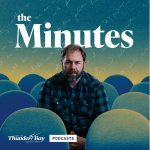The Thunder Bay Drug Strategy’s structure is made of working groups that take action on priority issues. They focus on Prevention, Treatment, Harm Reduction, Enforcement and Housing. Some have subcommittees or breakout working groups to work on actions. The chair of the main working group is connected to the Implementation Panel.
Implementation panel
|
Vision
To improve the health, safety and well-being of all citizens by working together to reduce substance-related harms.
Result
The community of Thunder Bay takes actions to reduce the harms associated with substance use.
Chair
Councillor Rebecca Johnson
Coordinator
Cynthia Olsen
Priority actions
- Monitor and evaluate actions
- Respond to findings of the Supervised Injection Services Feasibility Study
- Develop a working group focused on treatment
- Respond to growing opioid crisis and recreational cannabis legalization
- Respond to emerging and/or urgent issues as they arise
|
Community education and prevention
|
Purpose/results
Provide education to the public and support prevention activities for youth.
Coordination Responsibility
Drug Awareness Committee
Chair
Nancy Hernadez-Basurto
Priority actions
- Grow and promote an annual Recovery Day celebration in Thunder Bay
- Provide realistic drug and alcohol education to individuals impacted by risky drinking and substance use (e.g., university aged young adults, high school aged youth, and people transitioning to Thunder Bay)
- Increase public awareness of the connection between mental health, substance use and trauma
- Address drug-impaired driving in Thunder Bay ahead of legalization and regulation of recreational cannabis
|
Harm reduction
|
Purpose/results
Make sure people who use substances have top physical, emotional and mental health, and make sure citizens are safe.
Chair
Lori Kuzminski
Priority actions
- Increase local knowledge about harm reduction with the general public, service providers and individuals who use substances
- Increase ability to respond to mental health and substance-related crises
- Identify evidence-informed plans for non-beverage alcohol use to be implemented in Thunder Bay
- Increase awareness of and access to overdose prevention training and naloxone
|
Women and children
|
Purpose/results
Find ways to help substance-involved pregnant or parenting women and their children.
Co-chairs
Wilma Klynendorst and Jennifer McFarlane
Priority actions
- Expand evidence-informed family treatment options
- Identify a continuum of service needs for substance-involved pregnant and/or parenting women
- Develop a model for crisis housing for women and children that is recovery focused
|
Youth
|
Purpose/results
Get young people involved in substance-use awareness, advocacy and education with youth-led activities.
Chair
Christine Vita
Priority actions
- Engage youth in reviewing and implanting youth focused recommendations
- Create safe spaces designed by youth for youth
- Work with school boards to increase drug awareness and harm reduction education in local elementary and secondary schools
|
Housing
|
Purpose/results
Make sure all people in Thunder Bay have safe and secure housing they can afford.
Coordination Responsibility
Thunder Bay Housing & Homelessness Coalition
Co-chairs
Alice Bellavance and Cynthia Olsen
Priority actions
- Provide education on housing issues to politicians, service providers, landlords and public
- Advocate for more housing to meet the needs of individuals with complex needs
- Secure permanent funding for the SOS program and Kwae Kii Win Managed Alcohol Program
- Develop and secure funding for an Out of the Cold Program
- Advocate for more housing for priority populations – youth, women and individuals with Fetal Alcohol Spectrum Disorder (FASD)
|
Alcohol
|
Purpose/results
Better understand and respond to the impacts of alcohol use in the community.
Chair
Sheena Albanese
Priority actions
- Increase education and challenge social norms to support healthy public policy around alcohol
- Enhance protective factors for youth in Thunder Bay to reduce alcohol-related harms
- Advocate for enhanced services and support for those living with alcohol use disorders
- Promote policies and programs that improve the safety of drinking environments
|
Opioids
|
Purpose/results
Respond to the growing opioid crisis to reduce fatal and non-fatal overdose/opioid poisoning in Thunder Bay and District.
Chair
Dr. Emily Groot
Priority actions
- Develop an opioid emergency response plan
- Develop protocol for issuing alerts to the community
- Develop a localized opioid information system
- Conduct a situational assessment to better understand the issues and impacts of opioids in Thunder Bay and District
|
Lived experience
|
Purpose/results
Invite people with lived experience to get actively involved in the work of the Drug Strategy and other community actions.
Co-chairs
Mandy Tait-Martens and Person with Lived Experience Community Member
Priority actions
- Host monthly meetings to discuss ideas to address community social issues
- Act as an advisory to the Drug Strategy, and its working groups
- Act as an advisory to other community health, housing and social service actions
The People with Lived Experience Community Advisory Group is generously supported by funds and in-kind support from Kinna-aweya Legal Clinic, People Advocating for Change through Empowerment, the Poverty Reduction Strategy and the Thunder Bay Drug Strategy.
|








